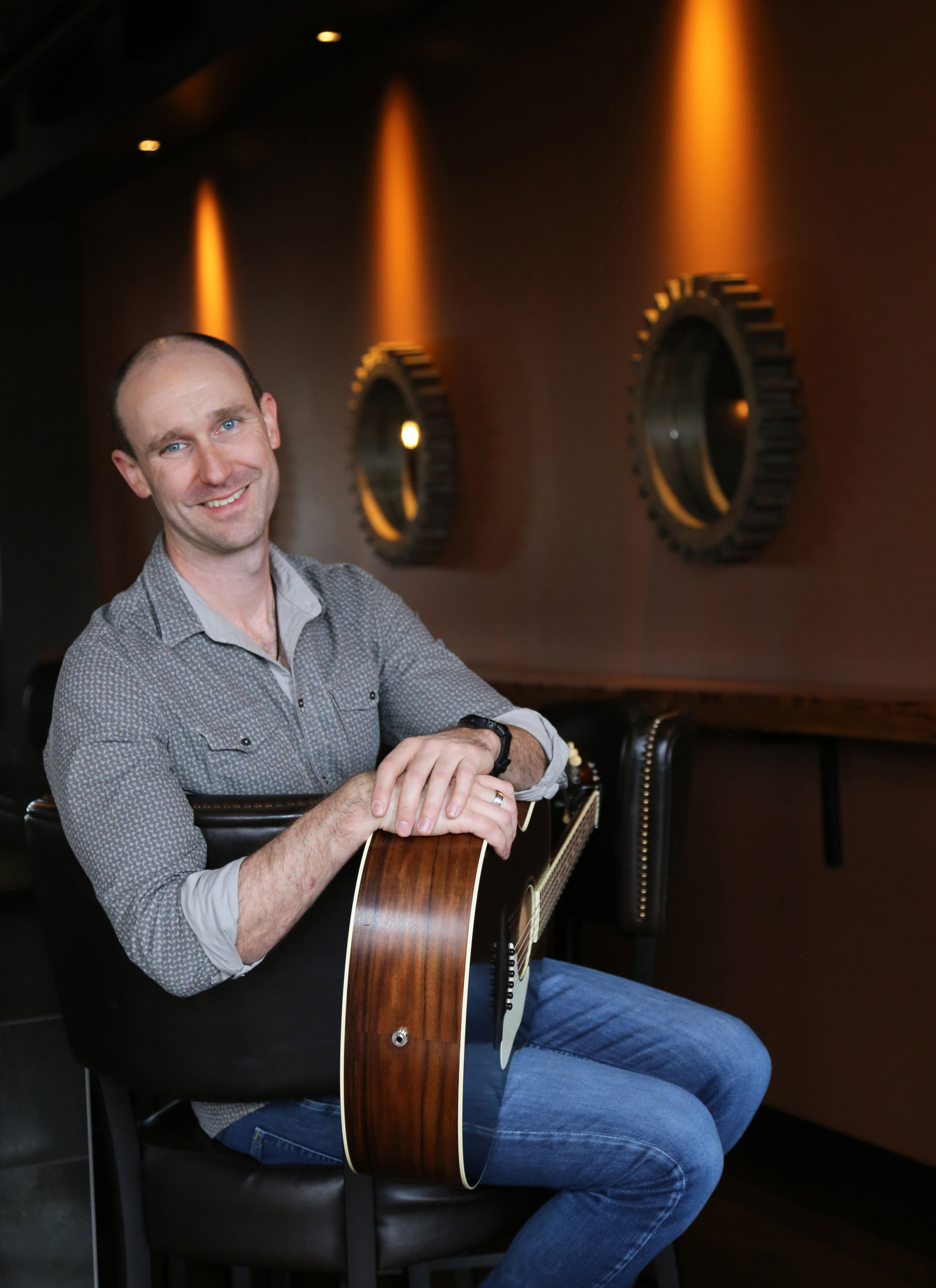
‘A big part of what we do is communicating with both sides — the artists and the venues — and understanding what their needs and wants are,’ says Brad Myrick, founder and co-owner of the NH Music Collective. (Photo by Allegra Boverman)A trained musician, Brad Myrick did not set out to start a business. After a gig at the Stark Tavern in Weare one night, the owner asked if he knew any other musicians who could play there. He knew plenty. Now, 10 years later, he is a booking agent, promoter, music publisher and all-around music businessman (as well as a performer and composer). Like a musical matchmaker, he finds the right artist for a venue and helps musicians stay busy and make money. Myrick and his partners at NH Music Collective work with 50 to 60 venues and hundreds of artists in New England and beyond, from solo cellists to punk bands.
Q. What is your musical background?
A. I played music growing up, but I started out at Suffolk University. After a year, I moved to L.A. to follow my music dream. I went to the University of Southern California and studied at the Thornton School of Music. I then went to Italy and began playing and teaching.
Q. How did you come up with this idea for a business?
A. It grew out of necessity when I came back to New Hampshire after six years in L.A. and three years in Italy. I needed certain things to work as a musician: contacts, video, promotion, etc. I’m very “street,” so I figured it all out. Looking around, I saw that there’s a lot of great talent in New Hampshire but no centralized music scene. I wanted to provide all these things for other working musicians, especially in rural New Hampshire, so they don’t feel like they need to leave the state to be successful.
Q. How did it grow into the current business?
A. I’ve always been pretty good at the management side of things: building and maintaining relationships, managing and following through on details. But the turning point came when I met my business partners, John McArthur and Reva Tankle, who own Greenhouse Studio in Gilford. We’re very aligned in our goals of building community and helping musicians on a larger scale. I kept the brand and formed a new company with them in 2020. They’re incredible business partners.
Q. What does NH Collective offer?
A. We started out basically booking events, but we’ve shifted into handling a much bigger package: scheduling, promotion, financial arrangements, artist development — all the details, right down to what to do when someone tests positive for Covid on a Friday afternoon and cancels. We also do artist development, production, recording, music publishing.
Q. What is artist development?
A. It’s like having a personal coach to guide you in reaching your goals as a musician. Advice and feedback on getting gigs, audience engagement, promotion, time management — all aspects of working as a musician.
Q. Why do musicians and talent buyers need a middle man?
A. People who are great at running a health facility or a restaurant may not have a music network or understand our business, and vice versa. Not every musician has an interest in the business side.
In our view it isn’t just transactional, like buying a loaf of bread. There’s a relationship that translates to better pay, better exposure, better locations for the artist. For the venue, everyone who attends has a more memorable experience.
Q. What are your goals for the next few years?
A. One is to keep the booking side growing: to grow the number of venues, providing more work for musicians. Some of our bigger accounts are the Bank of New Hampshire Stage and Dartmouth Health, which presents music at several locations. We’d like to add accounts like these and add special concert events like those at Sap House Meadery and the New England Coffee Festival. We’ll reach out more into the national and international scene, lining up tours for artists from outside New England or overseas. Let’s raise each other up — the total is more than the sum of its parts.
Q. What are the challenges?
A. It can be pretty hectic, especially when a band has to cancel for some reason. The last thing anyone wants is for a bunch of people to show up and not have a band. Finding a replacement is up to us, not the facility manager or the performer. We locate someone who can do that gig, then put it out on social media. We’re managing 10 to 12 concerts on a given weekend night, so we have to be in constant touch.